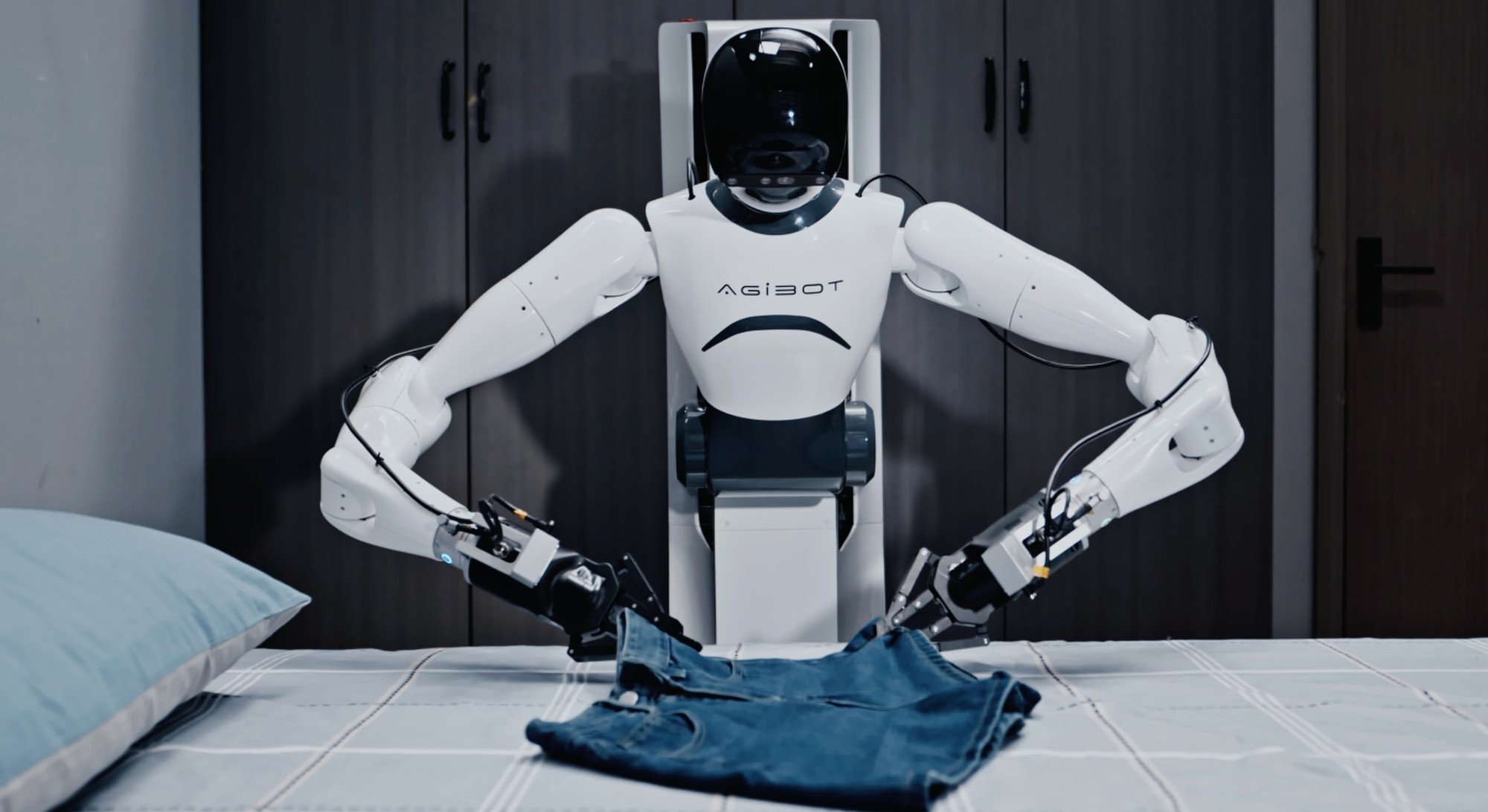Chinese Robot Maker Agibot Aims to Match Tesla's Optimus Production This Year
Agibot, a robotics startup based in Shanghai co-founded by a former Huawei Technologies According to a high-ranking official, "Genius Youth" aims to produce as many as 5,000 robots this year, which would be equivalent to Tesla’s Optimus project led by Elon Musk.
The firm, which operates under the name Zhiyuan Robotics, aims to distribute anywhere from 3,000 to 5,000 robots within this year. This represents a substantial uptick compared to less than 1,000 units dispatched last year, stated Yao Maoqing, an associate at Agibot and head of the enterprise’s embodied intelligence division. This notable rise in manufacturing underscores the zeal with which emerging Chinese robotic firms seek growth against the backdrop of their nation's flourishing robotics sector.
In the first two months of the year, industrial robot production in China surged by 27 percent compared to the previous year, reaching 91,088 units. Meanwhile, service robot output climbed by 36 percent to approximately 1.5 million units, as reported by official statistics.
Are you curious about the most significant issues and global trends? Find out here. SCMP Knowledge Our latest platform offers carefully selected content including explainers, FAQs, analyses, and infographics, all provided by our esteemed team of experts.

Established in 2023, Agibot has quickly emerged as a significant entity within Shanghai’s robotics industry, boasting an operational base in the Lingang New Area. The company intends to launch a fresh manufacturing site in the Pudong district aimed at boosting monthly output to over 400 robots, as stated by Yao.
"We plan to introduce new products into industrial settings this year, taking over particular jobs from humans to generate measurable customer benefits," Yao stated to the South China Morning Post.
It will probably be about another five years before households start adopting humanoid robots, he mentioned.
Agibot was co-founded by Peng Zhihui, who previously participated in Huawei’s prestigious “Elite Young Talent” program designed to identify exceptional youthful talents in China. Alongside Peng, other founders include various entrepreneurs like Xingxing Wang from Unitree Robotics He is considered pivotal in positioning China as a leading force in the field of robotics.
Yao, an experienced figure in the autonomous driving sector who has worked at various places, including Google Waymo and the Chinese electric vehicle manufacturer Nio , stated the nation boasts advantages in humanoid robotics, such as a complete hardware supply chain and ample artificial intelligence talent.
Yao stated that "The field of humanoid robotics is still in its infancy, with numerous potential uses yet to be explored, and current production costs remain quite steep." However, he anticipates these expenses will significantly drop as production ramps up, allowing for better distribution of expenditures on essential parts like motors, gearboxes, and modules over greater quantities and capitalizing on enhanced manufacturing efficiency."
Yao mentioned that broad acceptance will likely occur when the cost per unit drops to around 50,000 yuan (US$6,900).
Currently, Agibot manages three primary product lines: Yuanzheng, a two-legged human-like robot intended for business applications; Genie, a mobile platform equipped with two arms; and Lingxi, a compact humanoid aimed at both creators and end-users. The company marked a significant achievement in January when they reached their 1,000-unit production mark, comprising of 269 models with wheels and 731 walking robots. Peng has taken charge of developing Lingxi, particularly focusing on its newest iteration, the X2 version.

Agibot has successfully concluded at least eight financing rounds, drawing investments from notable venture capital firms including GL Ventures, Lanchi Ventures, HongShan Capital Group, and CAS Star, an entity supported by the prestigious Chinese Academy of Sciences. The company also counts several industry leaders among its backers. BYD Beijing Automotive Group Company (BAIC) and city-supported funds like Lingang's Sci-Tech Fund have also invested, according to Chinese corporate database Tianyancha.
Yao mentioned that the start-up is presently estimated to be worth approximately 10 billion yuan.
Similar to other robotic companies, Agibot encounters difficulties due to limited data availability. In contrast to the extensive online textual information used for training large language models, robots necessitate multimodal models capable of interpreting their physical environments.
Agibot has set up a data collection center in Shanghai, housing approximately 100 robots that produce roughly 50,000 high-quality motion data entries each day inside a 2,000 square meter space. Every entry includes tens of thousands of tokens.
“To attain general intelligence, robots need much larger datasets to confirm scaling laws and anticipate new abilities when data hits billions of tokens,” stated Yao. He highlighted Agibot’s dedication to utilizing open-source datasets, collaborating with industry partners and users, as well as generating additional data via simulations.
Earlier this month, Agibot launched "Genie Operator-1," a versatile embodied foundational model they asserted could boost robots’ ability to perform multiple tasks simultaneously.
More Articles from SCMP
China declares shared navy exercises with Thailand close to a South China Sea harbor.
Shares in Hong Kong declined as investors liquidated their positions due to the absence of significant drivers.
'Duplicity in Diplomacy': China Pledges Peace Before Pursuing Japan's Fishing Vessel
Taiwan has ordered three individuals from mainland China to depart after they promoted the idea of a military takeover of the island.
The article initially appeared on the South China Morning Post (www.scmp.com), which is the premier source for news coverage of China and Asia.
Copyright © 2025. South China Morning Post Publishers Ltd. All rights reserved.

Post a Comment for "Chinese Robot Maker Agibot Aims to Match Tesla's Optimus Production This Year"